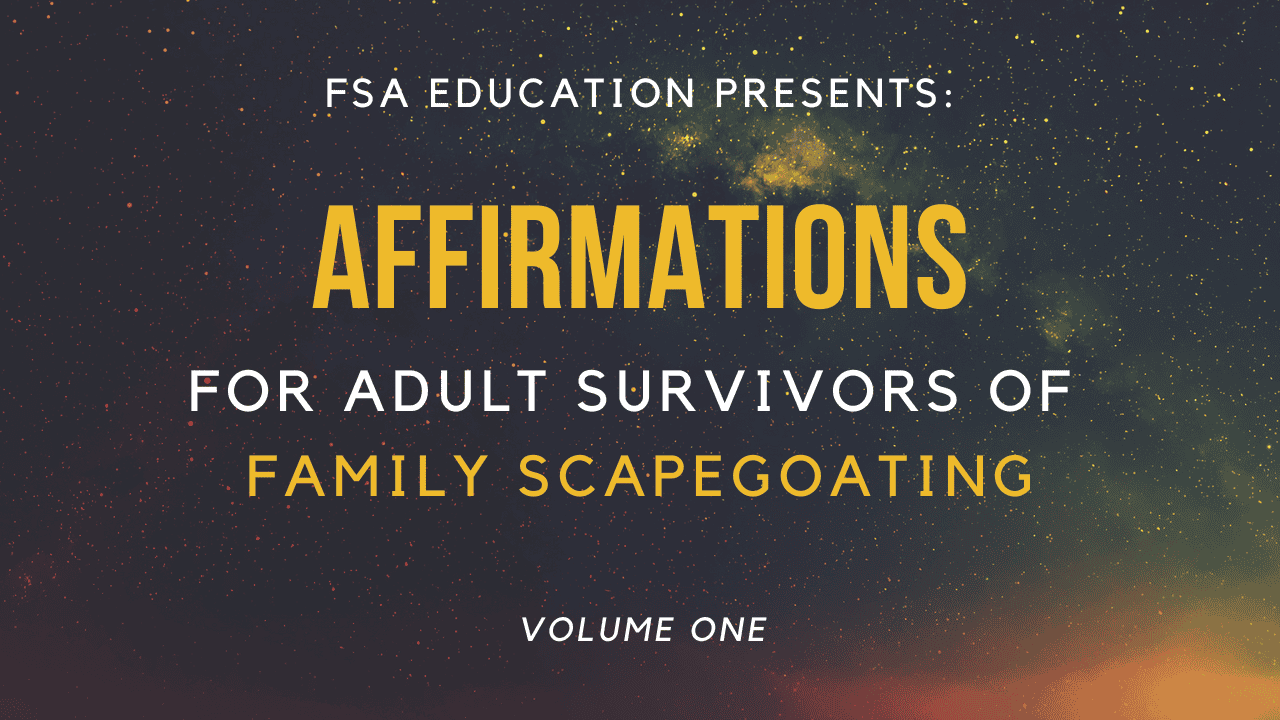One of the greatest challenges faced by adult survivors of family scapegoating abuse (FSA) is the tendency to ruminate over past painful incidents with family or be consumed by feelings of low self-worth, shame, anger, or grief. I therefore decided to create my first video volume of affirmations to help FSA adult survivors ‘reset’ habitual ways of thinking and feeling that can develop in conjunction with complex trauma symptoms.
I’ve just returned from a ‘stay-cation’ and have many ideas for new articles on FSA, which I look forward to sharing with you soon. I was excited to discover that nearly 100 people have already subscribed to my new FSA Education YouTube channel. It occurred to me that this channel provides me with an opportunity to create various types of online resources to support FSA adult survivors in their recovery. I’m therefore pleased to share this first volume of Affirmations for FSA Adult Survivors.
Affirmations can be an effective means of empowering adult survivors of childhood trauma by helping them focus in on what will most aid them in their recovery, as well as serving as inspiration to help them develop behaviors and thought patterns that assist them at the highest level.
These first ten affirmations are a product of my academic research on family scapegoating abuse, as well as what I’ve learned from treating FSA adult survivors in my psychotherapy and coaching practices for over 20 years. They are also informed by my own personal experience of being in the ‘scapegoat’ role in my family-of-origin since early childhood. If this affirmations video resonates with you, I encourage you to use it daily to support your recovery efforts and/or when you are feeling emotionally dysregulated.
Affirmations can at first feel difficult for abuse survivors, but they are a powerful means of transforming the types of negative thoughts that many FSA adult survivors struggle with due to their history of family abuse and betrayal. If you are unable to “buy into” or believe a particular affirmation included in this video, skip it for now and focus on the ones that you feel willing and able to work on.
Warning: If you feel an increased sense of emotional dysregulation after trying out these affirmations, set them aside for now, and perhaps revisit them at a later date.
ACCESS AFFIRMATIONS VIDEO HERE
If you find these affirmations helpful, please ‘like’ the video on YouTube and consider sharing it with others who are seeking to recover from the trauma of FSA. To be alerted to my latest videos, subscribe to my channel and tap the bell to be notified of my latest YouTube offerings.

Leave a Reply to Rebecca C. Mandeville, LMFT, CCTPCancel reply